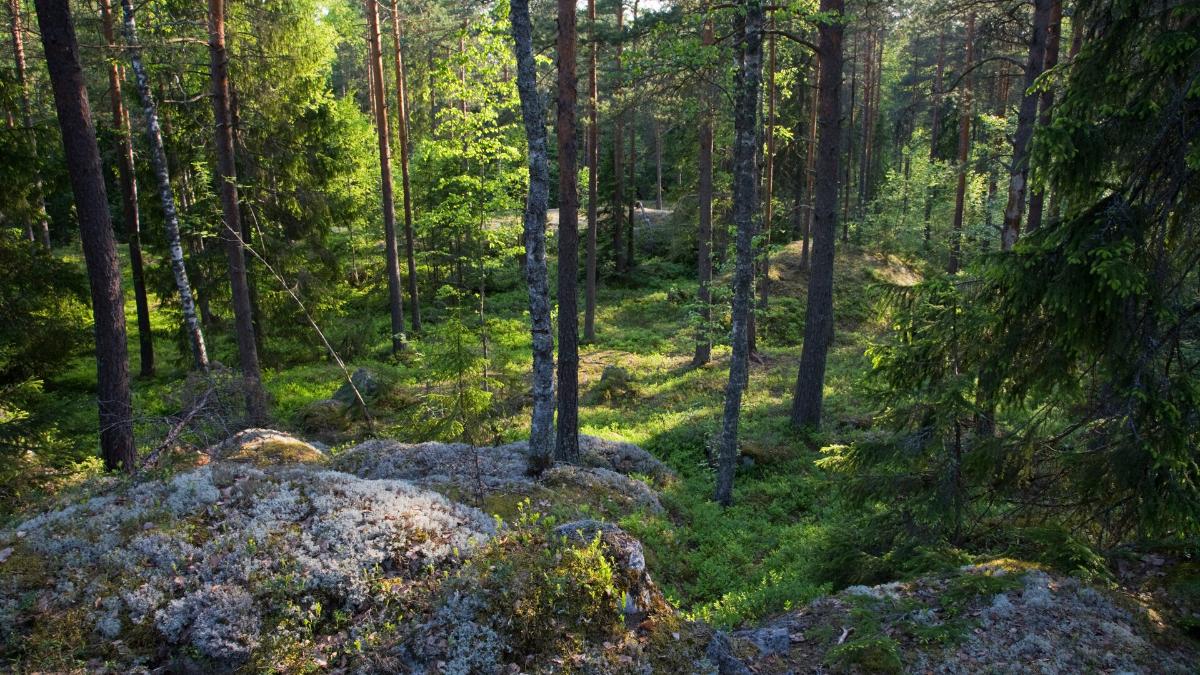Boreal zone countries to meet in Finland to discuss implementation of EU Biodiversity Strategy

The aim of the EU Biodiversity Strategy is to halt biodiversity loss and set Europe’s biodiversity on a path to recovery by 2030. Representatives from Estonia, Finland, Sweden, Latvia and Lithuania, which are located in the boreal zone, will meet in Finland on 10–12 October for discussions focusing in particular on the national commitments related to the strategy.
Of the EU Member States located in the boreal zone, only Sweden has submitted its national commitments to the European Commission so far. Finland plans to submit its commitments to the European Commission in early 2024. The goal is to send the national commitments out for comments together with the National Biodiversity Strategy in the beginning of the year.
"The government is committed to strengthening natural diversity. It is very important that we can come together and share ideas on implementing the EU Biodiversity Strategy, and thus move forward with this significant package that will effectively improve the state of nature,” says Minister of the Environment and Climate Change Kai Mykkänen.
Each Member State plans how it will achieve the objectives of the EU Biodiversity Strategy
The goal of the EU Biodiversity Strategy is to halt biodiversity loss and set Europe’s biodiversity on a path to recovery by 2030. The Member States have committed to 17 key targets aiming to achieve this goal. Two of these targets require the Member States to draw up national commitments to increase the amount of protected area and improve the status of species and habitats in their territories.
The first commitment concerns how the Member States will promote the common EU target of protecting 30 per cent of all land and sea area and designating 10 per cent of this as strictly protected. The strict protection target applies to all remaining primary and old-growth forests. The Natural Resources Institute Finland and the Finnish Environment Institute are currently drawing up national criteria for how to define primary and old-growth forests.
The second commitment concerns measures taken by the Member States to ensure the conservation status of the species and habitats defined in the Annexes to the Habitats and Birds Directives. The aim is to restore at least 30 per cent of habitats (61 types) and species (71 species) covered by the Habitats Directive and at least 30 per cent of bird species (82 species) covered by the Birds Directive from a poor status to a good status, or at least to set their development on a path to improvement by 2030. Measures must be taken to halt the deterioration of all species and habitats.
The remaining targets are related to improving the state of habitats in and outside of protected areas.
Boreal zone countries to share situational awareness and experiences
Tripartite negotiations on the EU Nature Restoration Law are currently underway. Once adopted, the Nature Restoration Law would make many of the objectives agreed on in the EU Biodiversity Strategy legally binding on the Member States. At the seminar, the Member States located in the boreal zone will prepare for the entry into force and implementation of the Nature Restoration Law by discussing and exchanging information with one another.
The seminar will also include presentations about conservation and nature management programmes already being implemented in Finland. The Helmi habitats programme aims to restore and manage habitats of particular importance for biodiversity, such as mires, aquatic bird habitats and wetlands, semi-natural grasslands, forest habitats, small water bodies and shores. The Forest Biodiversity Action Plan (METSO) currently has objectives spanning until 2025, but a decision has already been made on the continuation of the programme. The objectives for the extension period of the METSO programme and its expansion to cover all of Finland will be prepared together with stakeholders before the start of the new programming period. Both programmes are based on voluntary action by landowners.
Inquiries
EU Biodiversity Strategy:
Outi Ala-Honkola
Senior Specialist
tel. +358 50 427 0608
[email protected]
EU Nature Restoration Law:
Olli Ojala
Senior Ministerial Adviser
tel. +358 50 470 0907
[email protected]
National Biodiversity Strategy:
Joona Lehtomäki
Senior Specialist
tel. +358 50 598 6162
[email protected]
